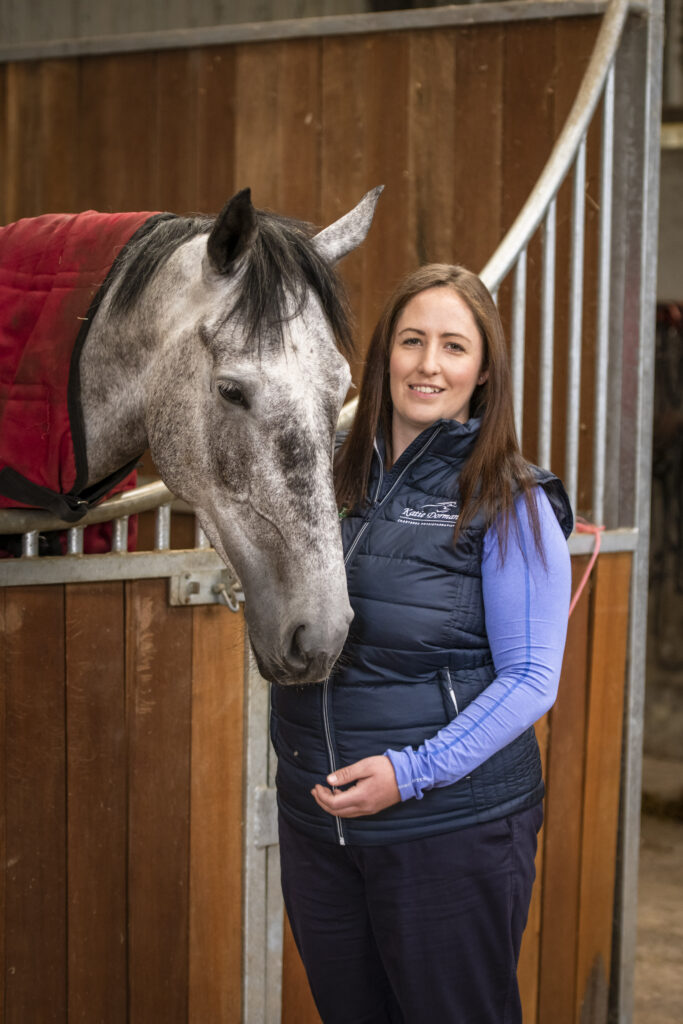It’s been a real pleasure driving around the countryside recently watching the trees turn the most gorgeous colours as autumn progresses. It’s been a brilliant, whirlwind year and I can’t quite believe that in just a couple of weeks the clocks will go back, and winter weather will be on its way. Of course, for me and all my horse owning clients, that means hard work and challenges until the spring sunshine arrives and the days get longer again. For this months’ blog I’m sharing six of my top tips which I hope will help you keep your horse healthy this winter. Let’s dive in:
- Assess their body condition regularly
If you only see your horse when it’s dark from Monday to Friday, or they are turned away and hidden under a rug, it can be tricky to judge their condition. Make sure you carve out a few minutes at least once a week, if not more often, to take off their rugs in good light and see how they are looking. Check for overall body condition, rug rubs, muscle atrophy and how their coat looks. They might need a thicker rug, fewer rugs, more forage or a visit from a physio to treat an injury – we’ve all seen horses slip and slide galloping around a muddy field. In terms of condition, bear in mind that horses are genetically predisposed to lose some weight in the winter when food is scarcer, and the temperatures are lower. In fact, winter can be an amazing tool to help an overweight cob or native shed some pounds but you want to catch unwanted weight loss early. For those horses, an extra rug and ad lib forage can help arrest weight loss, or they may need their teeth checking and/or some additional hard feed.
- Ensure turned out horses have access to shelter
A few years ago, a group of Swedish scientists assessed how horses behave during poor weather, and the results were quite surprising – in rain, snow, extreme cold and wind, the horses stayed grazing or snoozing in the field and ignored the shelter. The only time the horses seeked out shelter was when it was both raining hard and windy at the same time – which as we all know, can happen quite regularly during a British winter. That’s why every field should offer horses shelter of some kind – even if it’s a tall, mature hedge line around the field or a small copse of trees – so they can escape the weather if needed. A large, shared field shelter or barn gives horses vital social interaction as well as shelter.
- Focus on hydration, especially when temperatures drop
Winter can cause horses to dehydrate for two reasons – firstly, they are being fed dried forage (12-15% moisture content) instead of grass (60-80% moisture content). That means horses need to drink more to stay hydrated and to allow that dry matter to pass through their intestine safely. The second cause is if your horse has sensitive teeth, which is more common in older horses, or just objects to drinking cold water. Even if you’re vigilant about breaking the ice on their drinker, the very cold water may be rejected, leading to dehydration. This increases the risk of winter colic, which is usually a form of impaction colic, so make sure you offer tepid or slightly warm water as often as possible.
- Give stabled horses a good groom every day
If your horse lives out, discount this tip as they will need all the natural oils to stay in their coat to keep it warm and waterproof. But for horses who are living in and stabled a lot more in the winter, a thorough groom at least once a day has lots of benefits. It can boost blood flow and circulation, break up boredom and help you bond with your horse. Of course, there’s the added benefit of removing mud and sweat which can irritate the skin if it builds up and is left in place under rugs or tack. A good grooming session will also help you spot any changes in muscle tone or weight loss earlier, which means you can act more quickly. If you would like me to demonstrate some simple equine massage techniques next time I visit, just let me know. Working those into a winter grooming routine will be a great way to boost their circulation
- Remember horses don’t feel cold the same way we do
The rugging debate rears its head every year in magazines, on blogs and on social media, so here are my two pennies on the subject. Firstly, all horses are different and will feel the cold differently, and I know owners just want to do the right thing. However, there are some common misconceptions about horses and whether they are cold. For example, the idea that if the tips of their ears feel cold that means they need another rug isn’t correct, as horses divert blood to their organs when it’s cold. They might be perfectly content, so judge by feeling under the rug. Over-rugging is arguably as just bad as under-rugging and leaving a horse slightly cool, as it can cause the horse to develop issues with thermoregulation.
Horses have evolved very differently to humans – think about horses standing in deep snow with no ill effects to their legs. Their blunt, wide nose won’t freeze in a subzero wind like our little pointy one would! Equines have a different skin surface area to body mass ratio to us, which means they can tolerate much lower temperatures comfortably – when we’re reaching for a coat, they don’t necessarily need a rug. For horses who aren’t in work then, for most breeds, their winter coat will probably suffice, finer types may well need a rug when temperatures dip towards freezing. If they are clipped then remember you’ve taken away their ability to trap air between the outer and inner layer of hair, and so they may need a quilted style of rug to do the same job.
- When you exercise your horse, warm up well!
When the temperature is cold and your horse has been standing still in a stable or field, it’s imperative that you spend ample time warming up. That means spending up to twice as long walking and trotting before you attempt anything more athletic (and I include cantering on the lunge and pole work as athletic work) with them. Use an exercise sheet to keep the chill off their back while you warm up as you can always tuck it under your bum if they start to sweat after harder work. I promise you that time spent warming up is much better than time spent at the vets or with your physio while they treat an injured horse.
I really hope these tips help you and ensure your horse stays happy and healthy whatever this winter throws at us. I’d love to hear what your thoughts are and if you have any tried and tested tips for surviving a horsey winter!

